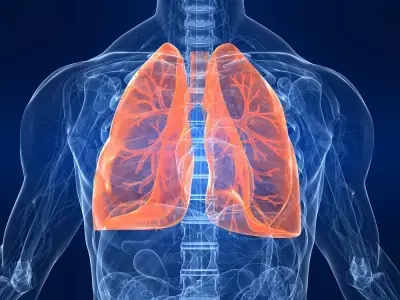- Home
- Medical news & Guidelines
- Anesthesiology
- Cardiology and CTVS
- Critical Care
- Dentistry
- Dermatology
- Diabetes and Endocrinology
- ENT
- Gastroenterology
- Medicine
- Nephrology
- Neurology
- Obstretics-Gynaecology
- Oncology
- Ophthalmology
- Orthopaedics
- Pediatrics-Neonatology
- Psychiatry
- Pulmonology
- Radiology
- Surgery
- Urology
- Laboratory Medicine
- Diet
- Nursing
- Paramedical
- Physiotherapy
- Health news
- Fact Check
- Bone Health Fact Check
- Brain Health Fact Check
- Cancer Related Fact Check
- Child Care Fact Check
- Dental and oral health fact check
- Diabetes and metabolic health fact check
- Diet and Nutrition Fact Check
- Eye and ENT Care Fact Check
- Fitness fact check
- Gut health fact check
- Heart health fact check
- Kidney health fact check
- Medical education fact check
- Men's health fact check
- Respiratory fact check
- Skin and hair care fact check
- Vaccine and Immunization fact check
- Women's health fact check
- AYUSH
- State News
- Andaman and Nicobar Islands
- Andhra Pradesh
- Arunachal Pradesh
- Assam
- Bihar
- Chandigarh
- Chattisgarh
- Dadra and Nagar Haveli
- Daman and Diu
- Delhi
- Goa
- Gujarat
- Haryana
- Himachal Pradesh
- Jammu & Kashmir
- Jharkhand
- Karnataka
- Kerala
- Ladakh
- Lakshadweep
- Madhya Pradesh
- Maharashtra
- Manipur
- Meghalaya
- Mizoram
- Nagaland
- Odisha
- Puducherry
- Punjab
- Rajasthan
- Sikkim
- Tamil Nadu
- Telangana
- Tripura
- Uttar Pradesh
- Uttrakhand
- West Bengal
- Medical Education
- Industry
Zinc deficiency promotes Acinetobacter lung infection, suggests study

Dietary zinc deficiency promotes lung infection by Acinetobacter baumannii bacteria - a leading cause of ventilator-associated pneumonia, according to a new study published Nov. 15 in the journal Nature Microbiology.
A Vanderbilt University Medical Center-led team of researchers discovered an unexpected link between the pro-inflammatory cytokine interleukin-13 (IL-13) and A. baumannii lung infection, and they demonstrated that blocking IL-13 prevented infection-associated death in an animal model.
The findings suggest that anti-IL-13 antibodies, which are FDA-approved for use in humans, may protect against bacterial pneumonia in patients with zinc deficiency.
“To our knowledge, this is the first study showing that neutralization of IL-13 could prevent mortality from a bacterial infection,” said Eric Skaar, PhD, MPH, the Ernest W. Goodpasture Professor of Pathology and director of the Vanderbilt Institute for Infection, Immunology and Inflammation. “This discovery points to the possibility of using anti-IL-13 therapy in patients with zinc deficiency and A. baumannii pneumonia as part of a personalized therapy approach.”
Nearly 20% of the world’s population is at risk for zinc deficiency, which can impair immune function and is a major risk factor for pneumonia. The World Health Organization considers zinc deficiency a leading contributor to disease and death.
Patients at risk for zinc deficiency, particularly critically ill and elderly patients, are also at risk for A. baumannii infection. Patients in health care settings have the highest risk for infection, especially those who are on ventilators, have devices such as catheters, are in intensive care units, or have prolonged hospital stays. A. baumannii is becoming increasingly resistant to antimicrobial treatments, making it a critical public health threat, Skaar said.
To explore whether and how dietary zinc deficiency contributes to A. baumannii pathogenesis, the researchers established a mouse model of dietary zinc deficiency and acute A. baumannii pneumonia. Lauren Palmer, PhD, a former postdoctoral fellow at VUMC who is now assistant professor of Microbiology and Immunology at the University of Illinois, Chicago, led the studies.
The researchers found that zinc-deficient mice had increased A. baumannii bacterial burden in the lungs, spread of bacteria to the spleen, and higher mortality compared to mice with adequate dietary zinc consumption. They showed that the zinc-deficient mice produce more IL-13 during infection and that administration of IL-13 to mice with sufficient zinc promoted spread of A. baumannii to the spleen. Anti-IL-13 antibody treatment protected zinc-deficient mice from A. baumannii-induced death.
The findings add to a growing set of studies showing that certain nutrient deficiencies are associated with IL-13 production and a “type 2” immune response.
“IL-13 may be an important risk factor for health care-associated and opportunistic lung infections, further supporting exploration of IL-13 as a target for treatment,” Skaar noted.
FDA-approved anti-IL-13 antibodies (lebrikizumab and tralokinumab) have been extensively investigated as potential therapies for uncontrolled severe asthma. Although they were not found to be effective for that indication, the clinical trials demonstrated their safety.
References: Lauren D. Palmer, Kacie A. Traina, Lillian J. Juttukonda, Zachery R. Lonergan, Dziedzom A. Bansah, Xiaomei Ren, John H. Geary, Christopher Pinelli, Kelli L. Boyd, Tzushan S. Yang & Eric P. Skaar Nature Microbiology (2024)Cite this article Metrics
Dr Kamal Kant Kohli-MBBS, DTCD- a chest specialist with more than 30 years of practice and a flair for writing clinical articles, Dr Kamal Kant Kohli joined Medical Dialogues as a Chief Editor of Medical News. Besides writing articles, as an editor, he proofreads and verifies all the medical content published on Medical Dialogues including those coming from journals, studies,medical conferences,guidelines etc. Email: drkohli@medicaldialogues.in. Contact no. 011-43720751


